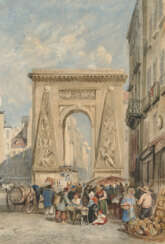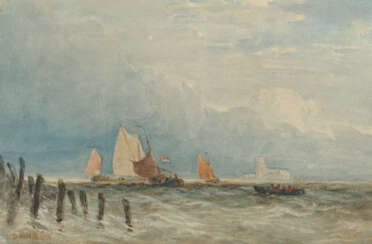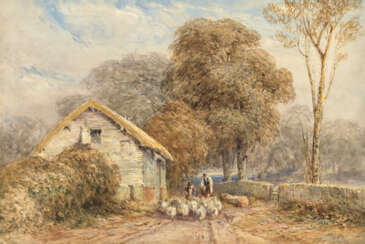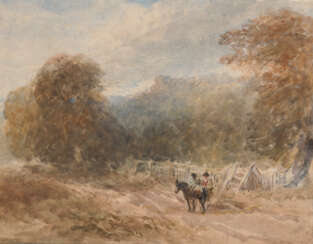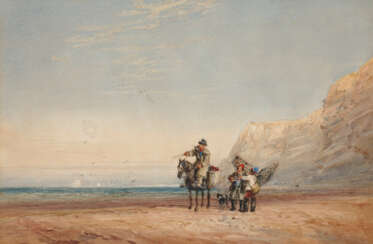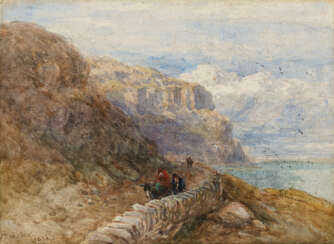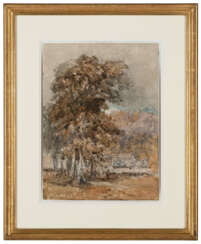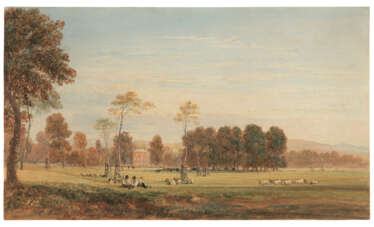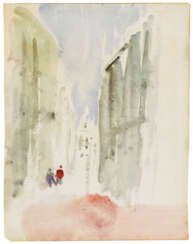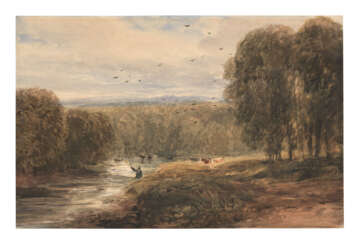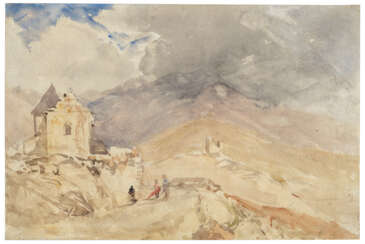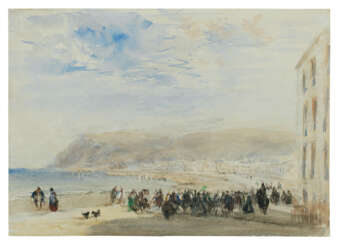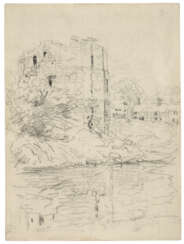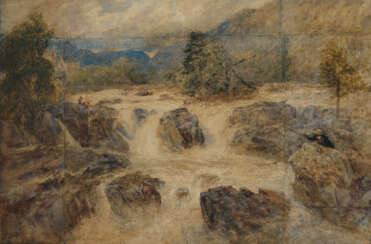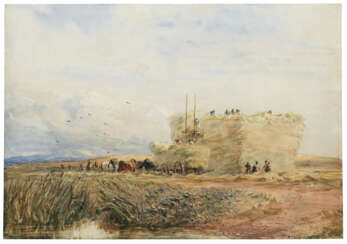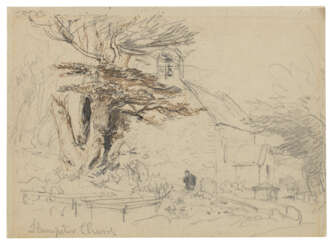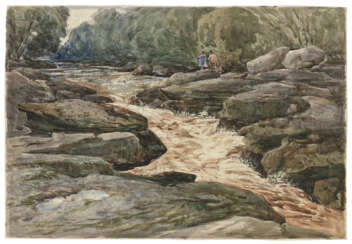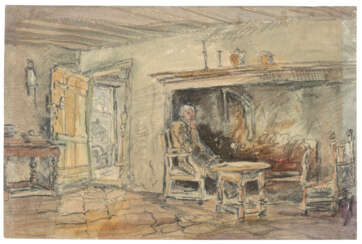David Cox (1783 - 1859) — Auction price
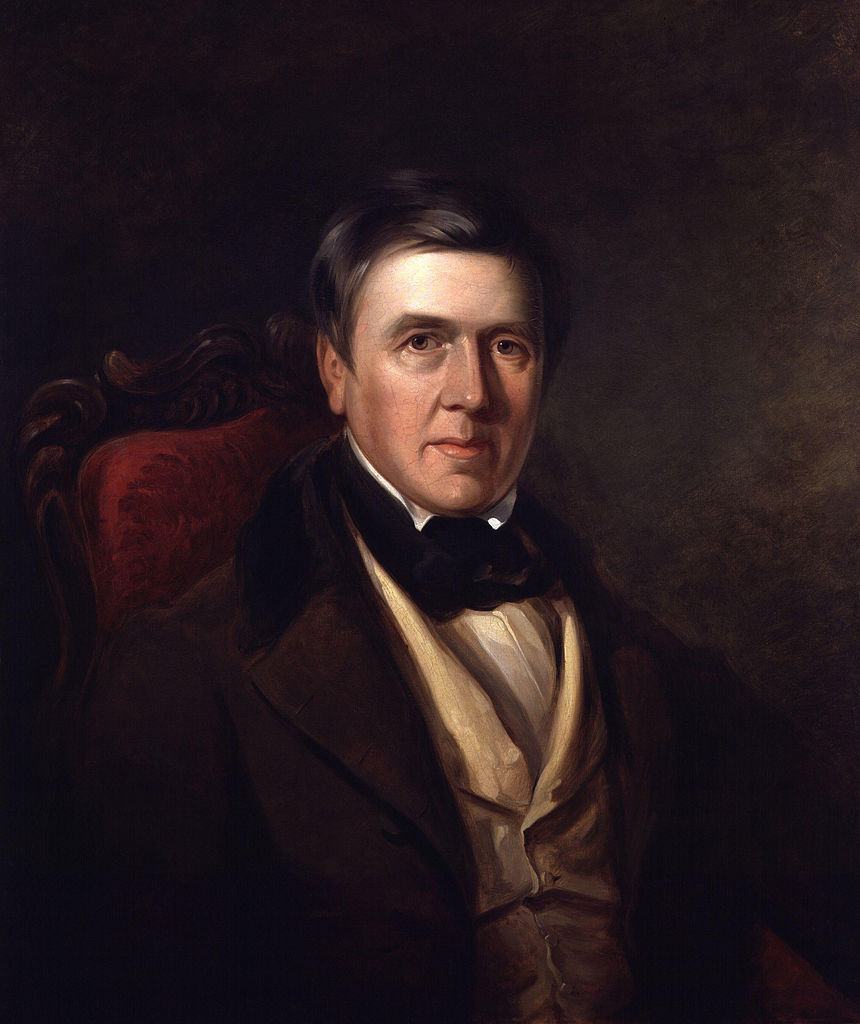
David Cox was a British landscape painter, celebrated for his pivotal role in the Birmingham School of landscape artists and as a precursor to Impressionism. Born in Birmingham in 1783, Cox initially worked in his hometown as a scene painter before pursuing a career in watercolors and, later, oils in London. His paintings are renowned for their dynamic depiction of the English and Welsh countryside, capturing the sublime effects of weather and light with a loose, expressive brushwork that distinguished him from his contemporaries.
Throughout his career, Cox experimented with various materials, notably adopting what came to be known as "Cox Paper," a rough paper that enhanced the textural effects of his watercolors. His works are held in high esteem and are part of collections in major museums, including The Metropolitan Museum of Art and the Tate Gallery, where his notable works such as "Journey Home" and "Rhyl Sands" are displayed.
In the latter years of his life, Cox returned to Birmingham, where he continued to innovate in both watercolors and oils until his death in 1859. His contributions to the landscape genre have left a lasting impact on the field of British art.
For collectors and art experts interested in David Cox's work, staying updated on sales and auction events can provide opportunities to acquire pieces by this influential artist. Sign up here to receive updates exclusively related to David Cox's artwork.
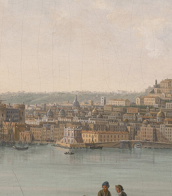

David Cox was a British landscape painter, celebrated for his pivotal role in the Birmingham School of landscape artists and as a precursor to Impressionism. Born in Birmingham in 1783, Cox initially worked in his hometown as a scene painter before pursuing a career in watercolors and, later, oils in London. His paintings are renowned for their dynamic depiction of the English and Welsh countryside, capturing the sublime effects of weather and light with a loose, expressive brushwork that distinguished him from his contemporaries.
Throughout his career, Cox experimented with various materials, notably adopting what came to be known as "Cox Paper," a rough paper that enhanced the textural effects of his watercolors. His works are held in high esteem and are part of collections in major museums, including The Metropolitan Museum of Art and the Tate Gallery, where his notable works such as "Journey Home" and "Rhyl Sands" are displayed.
In the latter years of his life, Cox returned to Birmingham, where he continued to innovate in both watercolors and oils until his death in 1859. His contributions to the landscape genre have left a lasting impact on the field of British art.
For collectors and art experts interested in David Cox's work, staying updated on sales and auction events can provide opportunities to acquire pieces by this influential artist. Sign up here to receive updates exclusively related to David Cox's artwork.


David Cox was a British landscape painter, celebrated for his pivotal role in the Birmingham School of landscape artists and as a precursor to Impressionism. Born in Birmingham in 1783, Cox initially worked in his hometown as a scene painter before pursuing a career in watercolors and, later, oils in London. His paintings are renowned for their dynamic depiction of the English and Welsh countryside, capturing the sublime effects of weather and light with a loose, expressive brushwork that distinguished him from his contemporaries.
Throughout his career, Cox experimented with various materials, notably adopting what came to be known as "Cox Paper," a rough paper that enhanced the textural effects of his watercolors. His works are held in high esteem and are part of collections in major museums, including The Metropolitan Museum of Art and the Tate Gallery, where his notable works such as "Journey Home" and "Rhyl Sands" are displayed.
In the latter years of his life, Cox returned to Birmingham, where he continued to innovate in both watercolors and oils until his death in 1859. His contributions to the landscape genre have left a lasting impact on the field of British art.
For collectors and art experts interested in David Cox's work, staying updated on sales and auction events can provide opportunities to acquire pieces by this influential artist. Sign up here to receive updates exclusively related to David Cox's artwork.


David Cox was a British landscape painter, celebrated for his pivotal role in the Birmingham School of landscape artists and as a precursor to Impressionism. Born in Birmingham in 1783, Cox initially worked in his hometown as a scene painter before pursuing a career in watercolors and, later, oils in London. His paintings are renowned for their dynamic depiction of the English and Welsh countryside, capturing the sublime effects of weather and light with a loose, expressive brushwork that distinguished him from his contemporaries.
Throughout his career, Cox experimented with various materials, notably adopting what came to be known as "Cox Paper," a rough paper that enhanced the textural effects of his watercolors. His works are held in high esteem and are part of collections in major museums, including The Metropolitan Museum of Art and the Tate Gallery, where his notable works such as "Journey Home" and "Rhyl Sands" are displayed.
In the latter years of his life, Cox returned to Birmingham, where he continued to innovate in both watercolors and oils until his death in 1859. His contributions to the landscape genre have left a lasting impact on the field of British art.
For collectors and art experts interested in David Cox's work, staying updated on sales and auction events can provide opportunities to acquire pieces by this influential artist. Sign up here to receive updates exclusively related to David Cox's artwork.
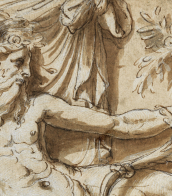

David Cox was a British landscape painter, celebrated for his pivotal role in the Birmingham School of landscape artists and as a precursor to Impressionism. Born in Birmingham in 1783, Cox initially worked in his hometown as a scene painter before pursuing a career in watercolors and, later, oils in London. His paintings are renowned for their dynamic depiction of the English and Welsh countryside, capturing the sublime effects of weather and light with a loose, expressive brushwork that distinguished him from his contemporaries.
Throughout his career, Cox experimented with various materials, notably adopting what came to be known as "Cox Paper," a rough paper that enhanced the textural effects of his watercolors. His works are held in high esteem and are part of collections in major museums, including The Metropolitan Museum of Art and the Tate Gallery, where his notable works such as "Journey Home" and "Rhyl Sands" are displayed.
In the latter years of his life, Cox returned to Birmingham, where he continued to innovate in both watercolors and oils until his death in 1859. His contributions to the landscape genre have left a lasting impact on the field of British art.
For collectors and art experts interested in David Cox's work, staying updated on sales and auction events can provide opportunities to acquire pieces by this influential artist. Sign up here to receive updates exclusively related to David Cox's artwork.


David Cox was a British landscape painter, celebrated for his pivotal role in the Birmingham School of landscape artists and as a precursor to Impressionism. Born in Birmingham in 1783, Cox initially worked in his hometown as a scene painter before pursuing a career in watercolors and, later, oils in London. His paintings are renowned for their dynamic depiction of the English and Welsh countryside, capturing the sublime effects of weather and light with a loose, expressive brushwork that distinguished him from his contemporaries.
Throughout his career, Cox experimented with various materials, notably adopting what came to be known as "Cox Paper," a rough paper that enhanced the textural effects of his watercolors. His works are held in high esteem and are part of collections in major museums, including The Metropolitan Museum of Art and the Tate Gallery, where his notable works such as "Journey Home" and "Rhyl Sands" are displayed.
In the latter years of his life, Cox returned to Birmingham, where he continued to innovate in both watercolors and oils until his death in 1859. His contributions to the landscape genre have left a lasting impact on the field of British art.
For collectors and art experts interested in David Cox's work, staying updated on sales and auction events can provide opportunities to acquire pieces by this influential artist. Sign up here to receive updates exclusively related to David Cox's artwork.
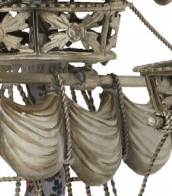

David Cox was a British landscape painter, celebrated for his pivotal role in the Birmingham School of landscape artists and as a precursor to Impressionism. Born in Birmingham in 1783, Cox initially worked in his hometown as a scene painter before pursuing a career in watercolors and, later, oils in London. His paintings are renowned for their dynamic depiction of the English and Welsh countryside, capturing the sublime effects of weather and light with a loose, expressive brushwork that distinguished him from his contemporaries.
Throughout his career, Cox experimented with various materials, notably adopting what came to be known as "Cox Paper," a rough paper that enhanced the textural effects of his watercolors. His works are held in high esteem and are part of collections in major museums, including The Metropolitan Museum of Art and the Tate Gallery, where his notable works such as "Journey Home" and "Rhyl Sands" are displayed.
In the latter years of his life, Cox returned to Birmingham, where he continued to innovate in both watercolors and oils until his death in 1859. His contributions to the landscape genre have left a lasting impact on the field of British art.
For collectors and art experts interested in David Cox's work, staying updated on sales and auction events can provide opportunities to acquire pieces by this influential artist. Sign up here to receive updates exclusively related to David Cox's artwork.
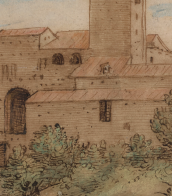

David Cox was a British landscape painter, celebrated for his pivotal role in the Birmingham School of landscape artists and as a precursor to Impressionism. Born in Birmingham in 1783, Cox initially worked in his hometown as a scene painter before pursuing a career in watercolors and, later, oils in London. His paintings are renowned for their dynamic depiction of the English and Welsh countryside, capturing the sublime effects of weather and light with a loose, expressive brushwork that distinguished him from his contemporaries.
Throughout his career, Cox experimented with various materials, notably adopting what came to be known as "Cox Paper," a rough paper that enhanced the textural effects of his watercolors. His works are held in high esteem and are part of collections in major museums, including The Metropolitan Museum of Art and the Tate Gallery, where his notable works such as "Journey Home" and "Rhyl Sands" are displayed.
In the latter years of his life, Cox returned to Birmingham, where he continued to innovate in both watercolors and oils until his death in 1859. His contributions to the landscape genre have left a lasting impact on the field of British art.
For collectors and art experts interested in David Cox's work, staying updated on sales and auction events can provide opportunities to acquire pieces by this influential artist. Sign up here to receive updates exclusively related to David Cox's artwork.
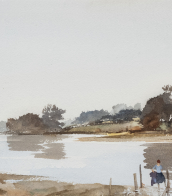

David Cox was a British landscape painter, celebrated for his pivotal role in the Birmingham School of landscape artists and as a precursor to Impressionism. Born in Birmingham in 1783, Cox initially worked in his hometown as a scene painter before pursuing a career in watercolors and, later, oils in London. His paintings are renowned for their dynamic depiction of the English and Welsh countryside, capturing the sublime effects of weather and light with a loose, expressive brushwork that distinguished him from his contemporaries.
Throughout his career, Cox experimented with various materials, notably adopting what came to be known as "Cox Paper," a rough paper that enhanced the textural effects of his watercolors. His works are held in high esteem and are part of collections in major museums, including The Metropolitan Museum of Art and the Tate Gallery, where his notable works such as "Journey Home" and "Rhyl Sands" are displayed.
In the latter years of his life, Cox returned to Birmingham, where he continued to innovate in both watercolors and oils until his death in 1859. His contributions to the landscape genre have left a lasting impact on the field of British art.
For collectors and art experts interested in David Cox's work, staying updated on sales and auction events can provide opportunities to acquire pieces by this influential artist. Sign up here to receive updates exclusively related to David Cox's artwork.
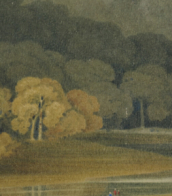

David Cox was a British landscape painter, celebrated for his pivotal role in the Birmingham School of landscape artists and as a precursor to Impressionism. Born in Birmingham in 1783, Cox initially worked in his hometown as a scene painter before pursuing a career in watercolors and, later, oils in London. His paintings are renowned for their dynamic depiction of the English and Welsh countryside, capturing the sublime effects of weather and light with a loose, expressive brushwork that distinguished him from his contemporaries.
Throughout his career, Cox experimented with various materials, notably adopting what came to be known as "Cox Paper," a rough paper that enhanced the textural effects of his watercolors. His works are held in high esteem and are part of collections in major museums, including The Metropolitan Museum of Art and the Tate Gallery, where his notable works such as "Journey Home" and "Rhyl Sands" are displayed.
In the latter years of his life, Cox returned to Birmingham, where he continued to innovate in both watercolors and oils until his death in 1859. His contributions to the landscape genre have left a lasting impact on the field of British art.
For collectors and art experts interested in David Cox's work, staying updated on sales and auction events can provide opportunities to acquire pieces by this influential artist. Sign up here to receive updates exclusively related to David Cox's artwork.
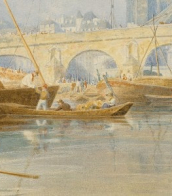

David Cox was a British landscape painter, celebrated for his pivotal role in the Birmingham School of landscape artists and as a precursor to Impressionism. Born in Birmingham in 1783, Cox initially worked in his hometown as a scene painter before pursuing a career in watercolors and, later, oils in London. His paintings are renowned for their dynamic depiction of the English and Welsh countryside, capturing the sublime effects of weather and light with a loose, expressive brushwork that distinguished him from his contemporaries.
Throughout his career, Cox experimented with various materials, notably adopting what came to be known as "Cox Paper," a rough paper that enhanced the textural effects of his watercolors. His works are held in high esteem and are part of collections in major museums, including The Metropolitan Museum of Art and the Tate Gallery, where his notable works such as "Journey Home" and "Rhyl Sands" are displayed.
In the latter years of his life, Cox returned to Birmingham, where he continued to innovate in both watercolors and oils until his death in 1859. His contributions to the landscape genre have left a lasting impact on the field of British art.
For collectors and art experts interested in David Cox's work, staying updated on sales and auction events can provide opportunities to acquire pieces by this influential artist. Sign up here to receive updates exclusively related to David Cox's artwork.


David Cox was a British landscape painter, celebrated for his pivotal role in the Birmingham School of landscape artists and as a precursor to Impressionism. Born in Birmingham in 1783, Cox initially worked in his hometown as a scene painter before pursuing a career in watercolors and, later, oils in London. His paintings are renowned for their dynamic depiction of the English and Welsh countryside, capturing the sublime effects of weather and light with a loose, expressive brushwork that distinguished him from his contemporaries.
Throughout his career, Cox experimented with various materials, notably adopting what came to be known as "Cox Paper," a rough paper that enhanced the textural effects of his watercolors. His works are held in high esteem and are part of collections in major museums, including The Metropolitan Museum of Art and the Tate Gallery, where his notable works such as "Journey Home" and "Rhyl Sands" are displayed.
In the latter years of his life, Cox returned to Birmingham, where he continued to innovate in both watercolors and oils until his death in 1859. His contributions to the landscape genre have left a lasting impact on the field of British art.
For collectors and art experts interested in David Cox's work, staying updated on sales and auction events can provide opportunities to acquire pieces by this influential artist. Sign up here to receive updates exclusively related to David Cox's artwork.
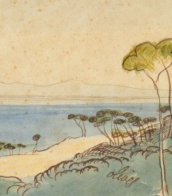

David Cox was a British landscape painter, celebrated for his pivotal role in the Birmingham School of landscape artists and as a precursor to Impressionism. Born in Birmingham in 1783, Cox initially worked in his hometown as a scene painter before pursuing a career in watercolors and, later, oils in London. His paintings are renowned for their dynamic depiction of the English and Welsh countryside, capturing the sublime effects of weather and light with a loose, expressive brushwork that distinguished him from his contemporaries.
Throughout his career, Cox experimented with various materials, notably adopting what came to be known as "Cox Paper," a rough paper that enhanced the textural effects of his watercolors. His works are held in high esteem and are part of collections in major museums, including The Metropolitan Museum of Art and the Tate Gallery, where his notable works such as "Journey Home" and "Rhyl Sands" are displayed.
In the latter years of his life, Cox returned to Birmingham, where he continued to innovate in both watercolors and oils until his death in 1859. His contributions to the landscape genre have left a lasting impact on the field of British art.
For collectors and art experts interested in David Cox's work, staying updated on sales and auction events can provide opportunities to acquire pieces by this influential artist. Sign up here to receive updates exclusively related to David Cox's artwork.


David Cox was a British landscape painter, celebrated for his pivotal role in the Birmingham School of landscape artists and as a precursor to Impressionism. Born in Birmingham in 1783, Cox initially worked in his hometown as a scene painter before pursuing a career in watercolors and, later, oils in London. His paintings are renowned for their dynamic depiction of the English and Welsh countryside, capturing the sublime effects of weather and light with a loose, expressive brushwork that distinguished him from his contemporaries.
Throughout his career, Cox experimented with various materials, notably adopting what came to be known as "Cox Paper," a rough paper that enhanced the textural effects of his watercolors. His works are held in high esteem and are part of collections in major museums, including The Metropolitan Museum of Art and the Tate Gallery, where his notable works such as "Journey Home" and "Rhyl Sands" are displayed.
In the latter years of his life, Cox returned to Birmingham, where he continued to innovate in both watercolors and oils until his death in 1859. His contributions to the landscape genre have left a lasting impact on the field of British art.
For collectors and art experts interested in David Cox's work, staying updated on sales and auction events can provide opportunities to acquire pieces by this influential artist. Sign up here to receive updates exclusively related to David Cox's artwork.


David Cox was a British landscape painter, celebrated for his pivotal role in the Birmingham School of landscape artists and as a precursor to Impressionism. Born in Birmingham in 1783, Cox initially worked in his hometown as a scene painter before pursuing a career in watercolors and, later, oils in London. His paintings are renowned for their dynamic depiction of the English and Welsh countryside, capturing the sublime effects of weather and light with a loose, expressive brushwork that distinguished him from his contemporaries.
Throughout his career, Cox experimented with various materials, notably adopting what came to be known as "Cox Paper," a rough paper that enhanced the textural effects of his watercolors. His works are held in high esteem and are part of collections in major museums, including The Metropolitan Museum of Art and the Tate Gallery, where his notable works such as "Journey Home" and "Rhyl Sands" are displayed.
In the latter years of his life, Cox returned to Birmingham, where he continued to innovate in both watercolors and oils until his death in 1859. His contributions to the landscape genre have left a lasting impact on the field of British art.
For collectors and art experts interested in David Cox's work, staying updated on sales and auction events can provide opportunities to acquire pieces by this influential artist. Sign up here to receive updates exclusively related to David Cox's artwork.


David Cox was a British landscape painter, celebrated for his pivotal role in the Birmingham School of landscape artists and as a precursor to Impressionism. Born in Birmingham in 1783, Cox initially worked in his hometown as a scene painter before pursuing a career in watercolors and, later, oils in London. His paintings are renowned for their dynamic depiction of the English and Welsh countryside, capturing the sublime effects of weather and light with a loose, expressive brushwork that distinguished him from his contemporaries.
Throughout his career, Cox experimented with various materials, notably adopting what came to be known as "Cox Paper," a rough paper that enhanced the textural effects of his watercolors. His works are held in high esteem and are part of collections in major museums, including The Metropolitan Museum of Art and the Tate Gallery, where his notable works such as "Journey Home" and "Rhyl Sands" are displayed.
In the latter years of his life, Cox returned to Birmingham, where he continued to innovate in both watercolors and oils until his death in 1859. His contributions to the landscape genre have left a lasting impact on the field of British art.
For collectors and art experts interested in David Cox's work, staying updated on sales and auction events can provide opportunities to acquire pieces by this influential artist. Sign up here to receive updates exclusively related to David Cox's artwork.


David Cox was a British landscape painter, celebrated for his pivotal role in the Birmingham School of landscape artists and as a precursor to Impressionism. Born in Birmingham in 1783, Cox initially worked in his hometown as a scene painter before pursuing a career in watercolors and, later, oils in London. His paintings are renowned for their dynamic depiction of the English and Welsh countryside, capturing the sublime effects of weather and light with a loose, expressive brushwork that distinguished him from his contemporaries.
Throughout his career, Cox experimented with various materials, notably adopting what came to be known as "Cox Paper," a rough paper that enhanced the textural effects of his watercolors. His works are held in high esteem and are part of collections in major museums, including The Metropolitan Museum of Art and the Tate Gallery, where his notable works such as "Journey Home" and "Rhyl Sands" are displayed.
In the latter years of his life, Cox returned to Birmingham, where he continued to innovate in both watercolors and oils until his death in 1859. His contributions to the landscape genre have left a lasting impact on the field of British art.
For collectors and art experts interested in David Cox's work, staying updated on sales and auction events can provide opportunities to acquire pieces by this influential artist. Sign up here to receive updates exclusively related to David Cox's artwork.


David Cox was a British landscape painter, celebrated for his pivotal role in the Birmingham School of landscape artists and as a precursor to Impressionism. Born in Birmingham in 1783, Cox initially worked in his hometown as a scene painter before pursuing a career in watercolors and, later, oils in London. His paintings are renowned for their dynamic depiction of the English and Welsh countryside, capturing the sublime effects of weather and light with a loose, expressive brushwork that distinguished him from his contemporaries.
Throughout his career, Cox experimented with various materials, notably adopting what came to be known as "Cox Paper," a rough paper that enhanced the textural effects of his watercolors. His works are held in high esteem and are part of collections in major museums, including The Metropolitan Museum of Art and the Tate Gallery, where his notable works such as "Journey Home" and "Rhyl Sands" are displayed.
In the latter years of his life, Cox returned to Birmingham, where he continued to innovate in both watercolors and oils until his death in 1859. His contributions to the landscape genre have left a lasting impact on the field of British art.
For collectors and art experts interested in David Cox's work, staying updated on sales and auction events can provide opportunities to acquire pieces by this influential artist. Sign up here to receive updates exclusively related to David Cox's artwork.


David Cox was a British landscape painter, celebrated for his pivotal role in the Birmingham School of landscape artists and as a precursor to Impressionism. Born in Birmingham in 1783, Cox initially worked in his hometown as a scene painter before pursuing a career in watercolors and, later, oils in London. His paintings are renowned for their dynamic depiction of the English and Welsh countryside, capturing the sublime effects of weather and light with a loose, expressive brushwork that distinguished him from his contemporaries.
Throughout his career, Cox experimented with various materials, notably adopting what came to be known as "Cox Paper," a rough paper that enhanced the textural effects of his watercolors. His works are held in high esteem and are part of collections in major museums, including The Metropolitan Museum of Art and the Tate Gallery, where his notable works such as "Journey Home" and "Rhyl Sands" are displayed.
In the latter years of his life, Cox returned to Birmingham, where he continued to innovate in both watercolors and oils until his death in 1859. His contributions to the landscape genre have left a lasting impact on the field of British art.
For collectors and art experts interested in David Cox's work, staying updated on sales and auction events can provide opportunities to acquire pieces by this influential artist. Sign up here to receive updates exclusively related to David Cox's artwork.


David Cox was a British landscape painter, celebrated for his pivotal role in the Birmingham School of landscape artists and as a precursor to Impressionism. Born in Birmingham in 1783, Cox initially worked in his hometown as a scene painter before pursuing a career in watercolors and, later, oils in London. His paintings are renowned for their dynamic depiction of the English and Welsh countryside, capturing the sublime effects of weather and light with a loose, expressive brushwork that distinguished him from his contemporaries.
Throughout his career, Cox experimented with various materials, notably adopting what came to be known as "Cox Paper," a rough paper that enhanced the textural effects of his watercolors. His works are held in high esteem and are part of collections in major museums, including The Metropolitan Museum of Art and the Tate Gallery, where his notable works such as "Journey Home" and "Rhyl Sands" are displayed.
In the latter years of his life, Cox returned to Birmingham, where he continued to innovate in both watercolors and oils until his death in 1859. His contributions to the landscape genre have left a lasting impact on the field of British art.
For collectors and art experts interested in David Cox's work, staying updated on sales and auction events can provide opportunities to acquire pieces by this influential artist. Sign up here to receive updates exclusively related to David Cox's artwork.

